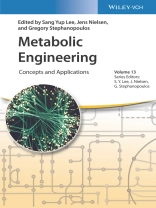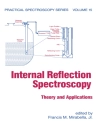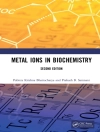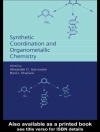Learn more about foundational and advanced topics in metabolic engineering in this comprehensive resource edited by leaders in the field
Metabolic Engineering: Concepts and Applications delivers a one-stop resource for readers seeking a complete description of the concepts, models, and applications of metabolic engineering. This guide offers practical insights into the metabolic engineering of major cell lines, including E. Coli, Bacillus and Yarrowia Lipolytica, and organisms, including human, animal, and plant). The distinguished editors also offer readers resources on microbiome engineering and the use of metabolic engineering in bioremediation.
Written in two parts, Metabolic Engineering begins with the essential models and strategies of the field, like Flux Balance Analysis, Quantitative Flux Analysis, and Proteome Constrained Models. It also provides an overview of topics like Pathway Design, Metabolomics, and Genome Editing of Bacteria and Eukarya.
The second part contains insightful descriptions of the practical applications of metabolic engineering, including specific examples that shed light on the topics within. In addition to subjects like the metabolic engineering of animals, humans, and plants, you’ll learn more about:
- Metabolic engineering concepts and a historical perspective on their development
- The different modes of analysis, including flux balance analysis and quantitative flux analysis
- An illuminating and complete discussion of the thermodynamics of metabolic pathways
- The Genome architecture of E. coli, as well as genome editing of both bacteria and eukarya
- An in-depth treatment of the application of metabolic engineering techniques to organisms including corynebacterial, bacillus, and pseudomonas, and more
Perfect for students of biotechnology, bioengineers, and biotechnologists, Metabolic Engineering: Concepts and Applications also has a place on the bookshelves of research institutes, biotechnological institutes and industry labs, and university libraries. It’s comprehensive treatment of all relevant metabolic engineering concepts, models, and applications will be of use to practicing biotechnologists and bioengineers who wish to solidify their understanding of the field.
विषयसूची
Volume 13a
Preface xvii
Part I Concepts 1
1 Metabolic Engineering Perspectives 3
Nian Liu and Gregory Stephanopoulos
1.1 History and Overview of Metabolic Engineering 3
1.2 Understanding Cellular Metabolism and Physiology 5
1.3 General Approaches to Metabolic Engineering 9
1.4 Host Organism Selection 15
1.5 Substrate Considerations 15
1.6 Metabolic Engineering and Synthetic Biology 16
1.7 The Future of Metabolic Engineering 17
2 Genome-Scale Models: Two Decades of Progress and a 2020 Vision 23
Bernhard O. Palsson
2.1 Introduction 23
2.2 Flux Balance Analysis 23
2.3 Network Reconstruction 30
2.4 Brief History of the GEM for E. coli 36
2.5 From Metabolism to the Proteome 42
2.6 Current Developments 50
2.7 Broader Perspectives 56
2.8 What Does the Future Look Like for GEMs? 59
3 Quantitative Metabolic Flux Analysis Based on Isotope Labeling 73
Wolfgang Wiechert and Katharina Nöh
3.1 Introduction 73
3.2 A Toy Example Illustrates the Basic Principles 77
3.3 Lessons Learned from the Example 97
3.4 How to Configure an Isotope Labeling Experiment 100
3.5 Putting Theory into Practice 108
3.6 Future Challenges of 13C-MFA 124
4 Proteome Constraints in Genome-Scale Models 137
Yu Chen, Jens Nielsen, and Eduard J. Kerkhoven
4.1 Introduction 137
4.2 Cellular Constraints 137
4.3 Formulation of Proteome Constraints 139
4.4 Perspectives 150
5 Kinetic Models of Metabolism 153
Hongzhong Lu, Yu Chen, Jens Nielsen, and Eduard J. Kerkhoven
5.1 Introduction 153
5.2 Definition of Enzyme Kinetics 153
5.3 Factors Affecting Intracellular Enzyme Kinetics 155
5.4 Kinetic Model: Definition and Scope 156
5.5 Main Mathematical Expressions in Description of Reaction Rates 158
5.6 Approximative Rate Expressions 159
5.7 Approaches to Assign Parameters in the Rate Expressions 160
5.8 Applications 166
5.9 Perspectives 167
6 Metabolic Control Analysis 171
David A. Fell
6.1 The Metabolic Engineering Context of Metabolic Control Analysis 171
6.2 MCA Theory 174
6.3 Implications of MCA for Metabolic Engineering Strategies 190
6.4 Conclusion 205
7 Thermodynamics of Metabolic Pathways 213
Daniel Robert Weilandt, Maria Masid, and Vassily Hatzimanikatis
7.1 Bioenergetics in Life and in Metabolic Engineering 213
7.2 Thermodynamics-Based Flux Analysis Workflow 215
7.3 Thermodynamics-Based Flux Analysis Applications 228
7.4 Conclusion and Future Perspectives 231
8 Pathway Design 237
Jasmin Hafner, Homa Mohammadi-Peyhani, and Vassily Hatzimanikatis
8.1 De Novo Design of Metabolic Pathways 237
8.2 Pathway Design Workflow 238
8.3 Applications 247
8.4 Conclusions and Future Perspectives 253
9 Metabolomics 259
Tomek Diederen, Alexis Delabrière, Alaa Othman, Michelle E. Reid, and Nicola Zamboni
9.1 Introduction 259
9.2 Fundamentals 260
9.3 Analytical Techniques 262
9.4 Data Analysis 272
9.5 Emerging Trends for Cellular Analyses 279
9.6 Applications of Metabolomics in Metabolic Engineering 281
9.7 Final Remarks 285
10 Genome Editing of Eukarya 301
Jonathan A. Arnesen, Jakob Blæsbjerg Hoof, Helene Faustrup Kildegaard, and Irina Borodina
10.1 Basic Principles of Genome Editing 301
10.2 Endonucleases 304
10.3 Genome Editing of Industrially Relevant Eukaryotes 310
10.4 Outlook 320
Volume 13b
Preface xvii
Part II Applications 339
11 Metabolic Engineering of Escherichia coli 341
Zi Wei Luo, Jung Ho Ahn, Tong Un Chae, So Young Choi, Seon Young Park, Yoojin Choi, Jiyong Kim, Cindy Pricilia Surya Prabowo, Jong An Lee, Dongsoo Yang, Taehee Han, Hanwen Xu, and Sang Yup Lee
12 Metabolic Engineering of Corynebacterium glutamicum 403
Judith Becker and Christoph Wittmann
13 Metabolic Engineering of Bacillus – New Tools, Strains, and Concepts 469
Mathis Appelbaum and Thomas Schweder
14 Metabolic Engineering of Pseudomonas 519
Pablo I. Nikel and Víctor de Lorenzo
15 Metabolic Engineering of Lactic Acid Bacteria 551
Robin Dorau, Jianming Liu, Christian Solem, and Peter Ruhdal Jensen
16 Metabolic Engineering and the Synthetic Biology Toolbox for Clostridium 611
Rochelle C. Joseph, Susan Q. Kelley, Nancy M. Kim, and Nicholas R. Sandoval
17 Metabolic Engineering of Filamentous Actinomycetes 653
Charlotte Beck, Kai Blin, Tetiana Gren, Xinglin Jiang, Omkar Satyavan Mohite, Emilia Palazzotto, Yaojun Tong, Pep Charusanti, and Tilmann Weber
18 Metabolic Engineering of Yeast 689
Rui Pereira, Olena P. Ishchuk, Xiaowei Li, Quanli Liu, Yi Liu, Maximilian Otto, Yun Chen, Verena Siewers, and Jens Nielsen
19 Harness Yarrowia lipolytica to Make Small Molecule Products 735
Kang Zhou and Gregory Stephanopoulos
20 Metabolic Engineering of Filamentous Fungi 765
Vera Meyer
21 Metabolic Engineering of Photosynthetic Cells – in Collaboration with Nature 803
Mette Sørensen and Birger Lindberg Møller
22 Metabolic Engineering for Large-Scale Environmental Bioremediation 859
Pablo I. Nikel and Víctor de Lorenzo
Index 891
लेखक के बारे में
Sang Yup Lee is Distinguished Professor at the Department of Chemical and Biomolecular Engineering at the Korea Advanced Institute of Science and Technology (KAIST). He is currently the Director of the Center for Systems and Synthetic Biotechnology, Director of the Bio Process Engineering Research Center, and Director of the Bioinformatics Research Center. He has published more than 500 journal papers, 64 books and book chapters, and more than 580 patents (either registered or applied). He received numerous awards, including the National Order of Merit, the Merck Metabolic Engineering Award, the ACS Marvin Johnson Award, Charles Thom Award, Amgen Biochemical Engineering Award, Elmer Gaden Award, POSCO TJ Park Prize, and Ho Am Prize. He currently is Fellow of American Association for the Advancement of Science, the American Academy of Microbiology, American Institute of Chemical Engineers, Society for Industrial Microbiology and Biotechnology, American Institute of Medical and Biological Engineering, the World Academy of Science, the Korean Academy of Science and Technology, and the National Academy of Engineering of Korea. He is also Foreign Member of National Academy of Engineering USA. He is currently honorary professor of the University of Queensland (Australia), honorary professor of the Chinese Academy of Sciences, honorary professor of Wuhan University (China), honorary professor of Hubei University of Technology (China), honorary professor of Beijing University of Chemical Technology (China), and advisory professor of the Shanghai Jiaotong University (China). Lee is the Editor-in-Chief of the Biotechnology Journal and Associate Editor and board member of numerous other journals. Lee is currently serving as a member of Presidential Advisory Committee on Science and Technology (Korea).
Jens Nielsen is Professor and Director to Chalmers University of Technology (Sweden) since 2008. He obtained an MSc degree in Chemical Engineering and a Ph D degree (1989) in Biochemical Engineering from the Technical University of Denmark (DTU) and after that established his independent research group and was appointed full Professor there in 1998. He was Fulbright visiting professor at MIT in 1995-1996. At DTU, he founded and directed the Center for Microbial Biotechnology. Jens Nielsen has published more than 350 research papers, co-authored more than 40 books and he is inventor of more than 50 patents. He has founded several companies that have raised more than 20 million in venture capital. He has received numerous Danish and international awards and is member of the Academy of Technical Sciences (Denmark), the National Academy of Engineering (USA), the Royal Danish Academy of Science and Letters, the American Institute for Medical and Biological Engineering and the Royal Swedish Academy of Engineering Sciences.
Professor Gregory Stephanopoulos is the W. H. Dow Professor of Chemical Engineering at the Massachusetts Institute of Technology (MIT, USA) and Director of the MIT Metabolic Engineering Laboratory. He is also Instructor of Bioengineering at Harvard Medical School (since 1997). He received his BS degree from the National Technical University of Athens and his Ph D from the University of Minnesota (USA). He has co-authored approximately 400 research papers and 50 patents, along with the first textbook on Metabolic Engineering. He has been recognized by numerous awards from the American Institute of Chemical Engineers (AICh E) (Wilhelm, Walker and Founders awards), American Chemical Society (ACS), Society of industrial Microbiology (SIM), BIO (Washington Carver Award), the John Fritz Medal of the American Association of Engineering Societies, and others. In 2003 he was elected member of the National Academy of Engineering (USA) and in 2014 President of AICh E.












